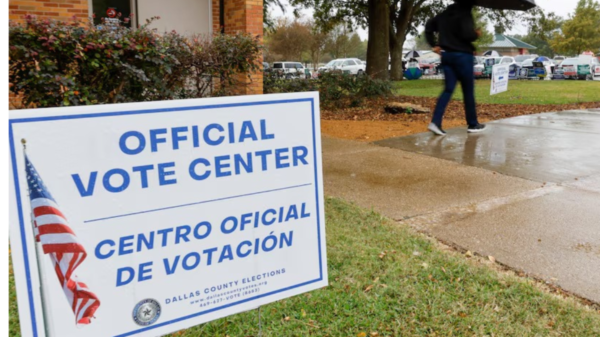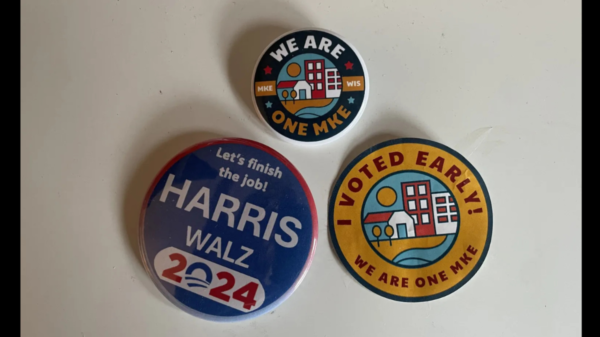By Barrington M. Salmon
NNPA Newswire

In February last year, TEGNA – which owns 64 television stations in 51 US markets –agreed to be acquired by Standard General for $8.6 billion, including debt. The deal was expected to close in late 2022. But an unanticipated hurdle came in the form of Federal Communications Commission Chair Jessica Rosenworcel who instructed the FCC’s Media Bureau to designate the deal for a hearing in front of an administrative law judge. “As part of the FCC’s mission, we are responsible for determining whether the grant of the applications constituting this transaction serves the public interest,” said Rosenworcel. “That’s why we’re asking for closer review to ensure that this transaction does not anti-competitively raise prices or put local newsrooms at risk.”
She said the judge needed to weigh in on “material concerns in the record related to how the proposed transaction could artificially raise prices for consumers and result in job losses.” At the time, observers and experts said if Rosenworcel’s decision did not kill the deal –as it had in other instances – it would delay a decision for months. In the end, the FCC left Standard General hanging for more than 420 days, never offering any reasons for the delay, ultimately opting not to bring the deal up for a vote and allowing the May 22 deadline to pass without comment. In the weeks and months before the May 22 financial deadline, Standard General’s founding and management partner Soo Kim, said in an exclusive interview, that Standard General fully expected “the FCC to come back and give updates, status reports and answer its remaining questions.” Indeed, he explained, when the deal came before the FCC, the expectation was that commissioners would study the details of the deal and schedule a straight up-and-down vote.
Kim, who is also Standard General’s Chief Investment Officer, said he is at a loss as to why the process played out the way it did. “We are well over a year. There’s never been a ruling-conforming TV acquisition. It’s never taken 180 days, which is the guideline the FCC uses,” said Kim, who was born in Seoul, South Korea, and moved with his family to New York City when he was five. “The presumption is that if the government is taking a long time, it’s because of weighty issues but we don’t know.”
Kim – an independent director of Bally’s Corporation and the preceding entity Twin River Worldwide Holdings, Inc. since 2016 – said the FCC hadn’t reached out or spoken to Standard General for six months. “It feels like a delay tactic. It’s pretty nuts. The presumption is that dealing with the government means there should be some response. There’s no precedent for no response at all,” he said. “It’s one thing if they said the deal is faulty. There’s nowhere to go. No recourse. We’ve answered every question the FCC posed. We can’t go to court. It’s sort of an interesting situation. There’s no analogy to this happening.”
Supporters of the deal agreed with Kim, who in a statement said, “The FCC Media Bureau’s unprecedented move to scuttle the Standard General-TEGNA transaction jeopardized a historic strengthening of local news and expansion of diversity in the ownership of local broadcast television stations, despite the transaction having widespread support and being consistent with all FCC regulations and precedent.” Former FCC Commissioner Mignon Clyburn agreed, saying she was one of those supporters pushing the FCC to schedule and take a straight up-and-down vote before the expiration of the deadline.
“It’s not like this applicant is a stranger. We can look at what they’ve done to see what they do. Full consideration by this full administrative body to vote on this issue could be game-changing,” said Clyburn, who was the publisher and general manager of The Coastal Times, a Charleston-based family-founded newspaper for 14 years. “He is making unprecedented promises that we all say we want and need, such as freezing employee numbers for three years, and $5 million to train employees.” “Soo agreed to freeze layoffs and develop pathways for different opportunities for employees. He signed MOUs and agreements. Then to be stuck in limbo by regulatory procedures, not even having a path to consideration, is harmful to the applicants. We’re hoping for a pathway not an exercise in futility.”
Clyburn, who served her two terms on the FCC from August 3, 2009, to February 19, 2013, said despite the challenges, she was hopeful the issue could be resolved. Some who opposed the deal include media mogul Byron Allen who came in second bidding for TEGNA, some labor union reps, and Common Cause, which takes issue with a hedge fund controlling television stations and other media outlets. The deal also drew opposition from House Speaker Emeritus Nancy Pelosi, Rep. Frank Pallone, Jr., and Sen. Elizabeth Warren who pressed Rosenworcel to very carefully vet certain aspects of the deal. Warren expressed concerns about the deal being an anti-competitive consolidation that might have led to increased retransmission-consent fees, layoffs, and reduced competition for ads.
But there were others, including Sen. Ted Cruz and Rep. Cathy MacMasters Rogers, who sided with Kim and Standard General and excoriated Rosenworcel in letters and hearings this summer. “Faced with a 2-2 Commission and a lawful transaction she wanted to kill, she skipped a Commission-level vote on the Standard General-TEGNA transaction and directed the FCC’s Media Bureau to do her bidding,” Cruz said. “And to top it off, there is widespread suspicion that the Chairwoman quashed the deal to benefit a longtime Democrat donor. (Her actions) “seriously damaged the FCC’s reputation and damaged broadcasters’ ability “to compete against big tech companies and provide local journalism.”
“The opposition has changed constantly,” said Kim. “They say that we’d raise rates for consumers and fire a lot of employees. They also told us they don’t like hedge funds or private equity in the media. It is another misconception – state pension funds, retirees, large institutional investors – that’s our base.” Kim said the FCC’s decision puts a chill on the prospect of future minority investment in broadcasting and sets the stage for unfair treatment from bureaucrats towards future parties with transactions before the commission. FCC Commissioner Brendan Carr told a reporter after an April FCC hearing he was deeply concerned about the delay because it went against the FCC’s publicly stated support for diversity.
“I believe the application deserves a straight up-and-down vote. Diversity is important. The FCC should remove any impediments,” said Carr, the senior Republican on the FCC who once served as the agency’s general counsel. “It’s been a year-long process. Local news is sputtering by the moment.” With that reality, Carr said, the FCC needs to create incentives adding that the deal – if approved – would represent “a really break-glass moment.”
“Hundreds of local newspapers have shut down over the last few years alone. This trend is part of a broader decline in the investments necessary to sustain the journalists and reporters that are vital to communities across the country,” Carr said in a Feb 24, 2023, joint statement with Commissioner Nathan Simington after the public review. “Many of the nation’s local TV stations are trying to step up and expand their newsgathering operations. At this moment, the FCC should be working to encourage more of the investment necessary for these local broadcasters to innovate and thrive. It does the opposite today. After a protracted, nearly yearlong review, the commission should be providing the parties with a decision on the merits – not an uncertain future.”







You must be logged in to post a comment Login